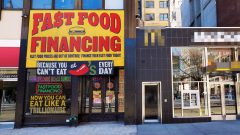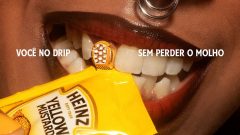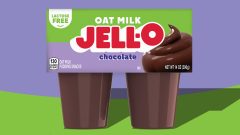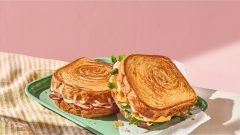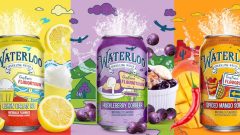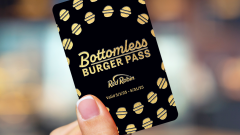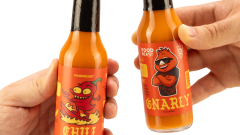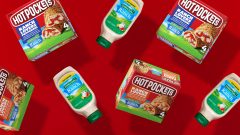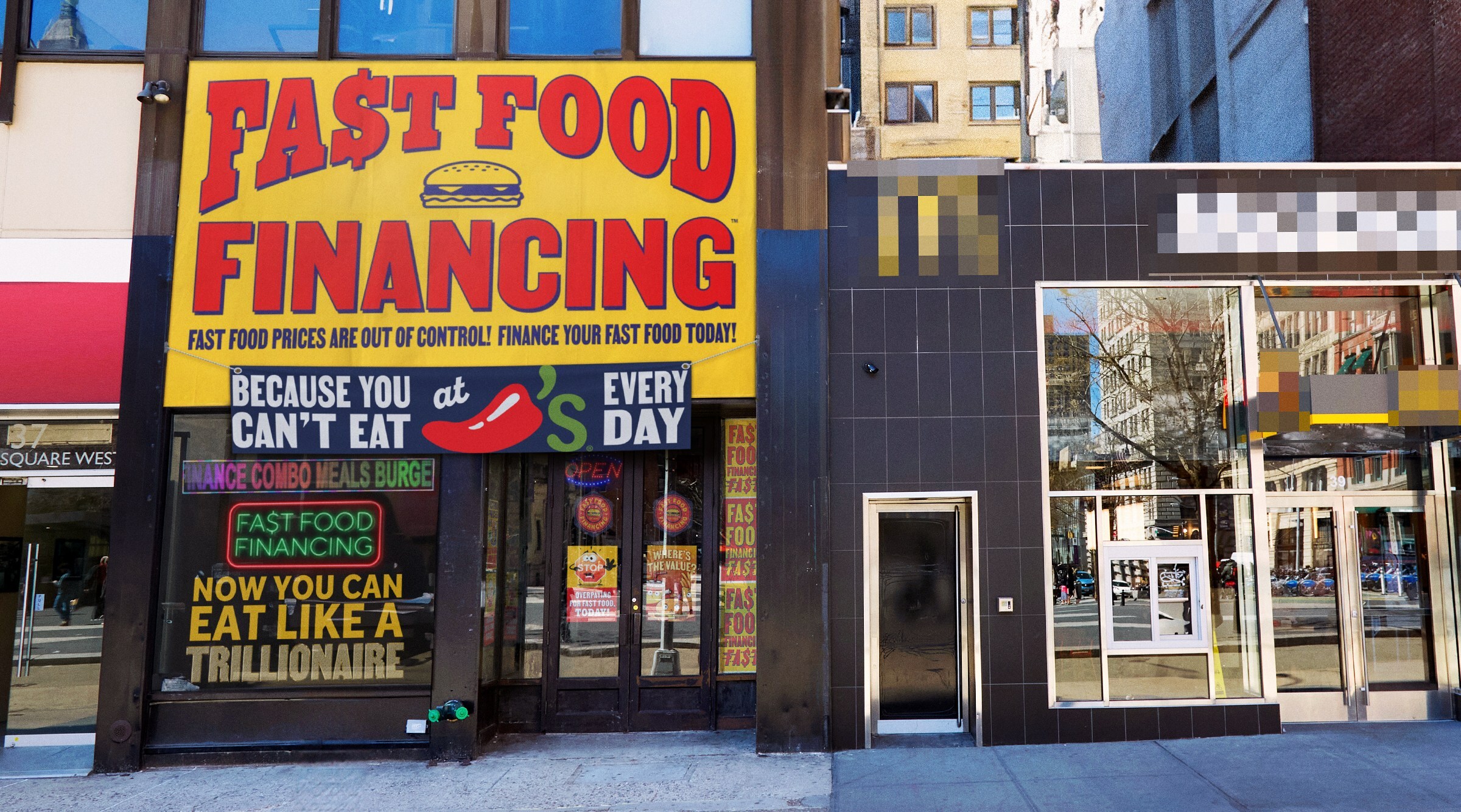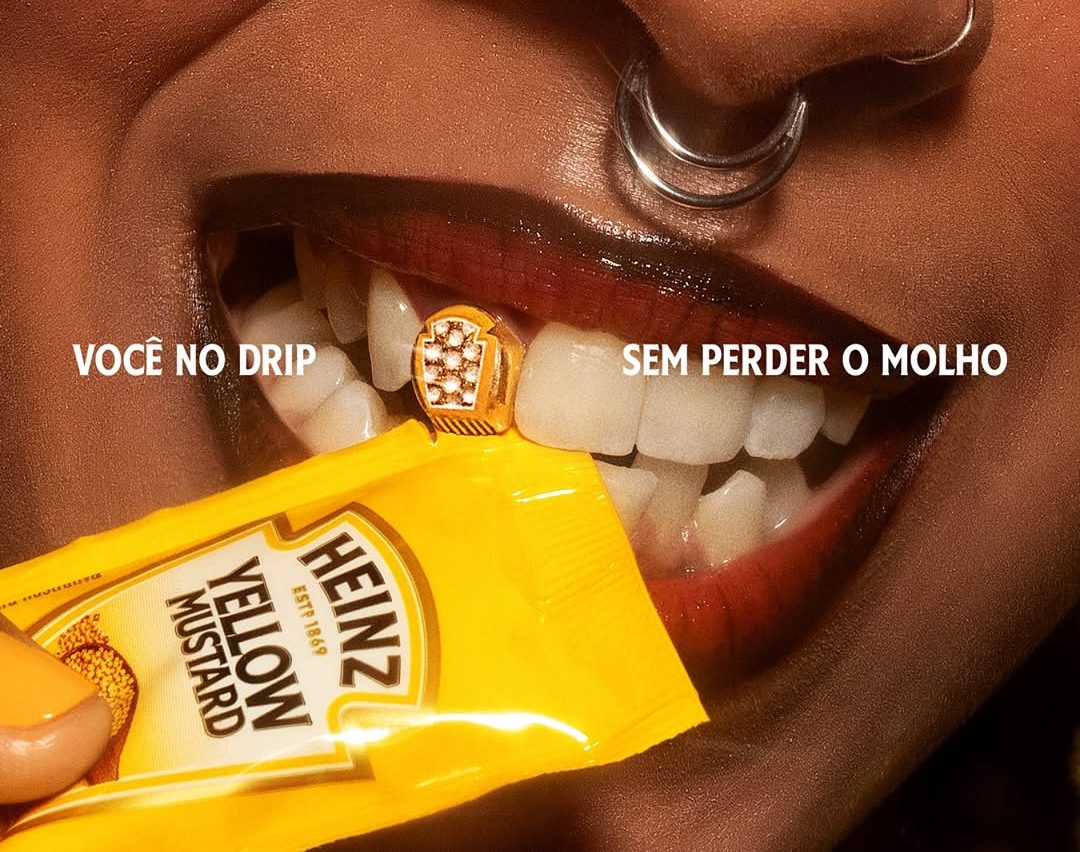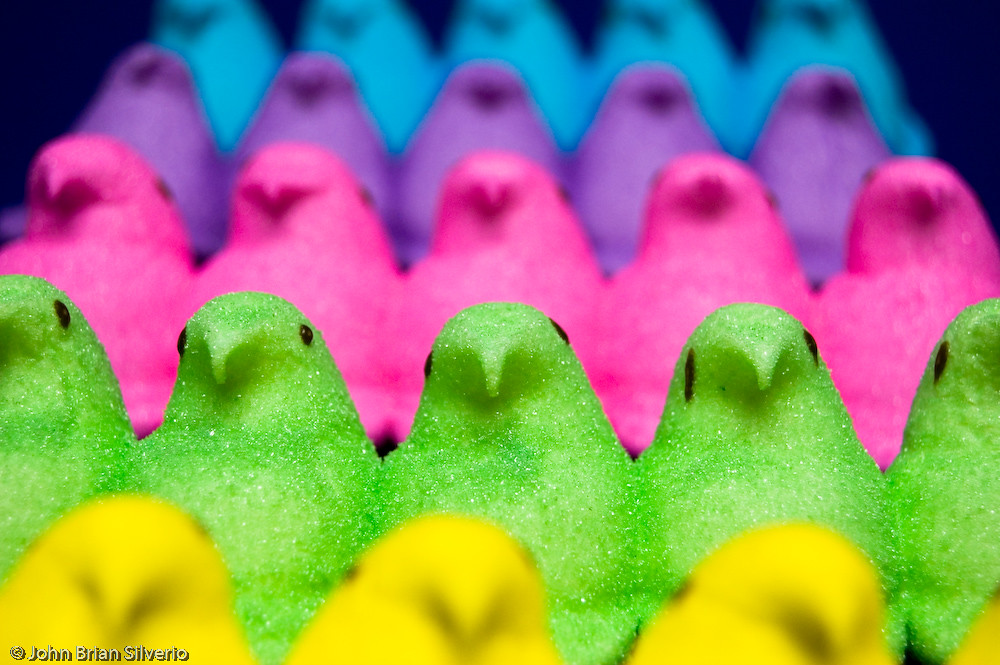‘Free Juice Day’ Is The Stealing Food Movement That Has People On The Fence
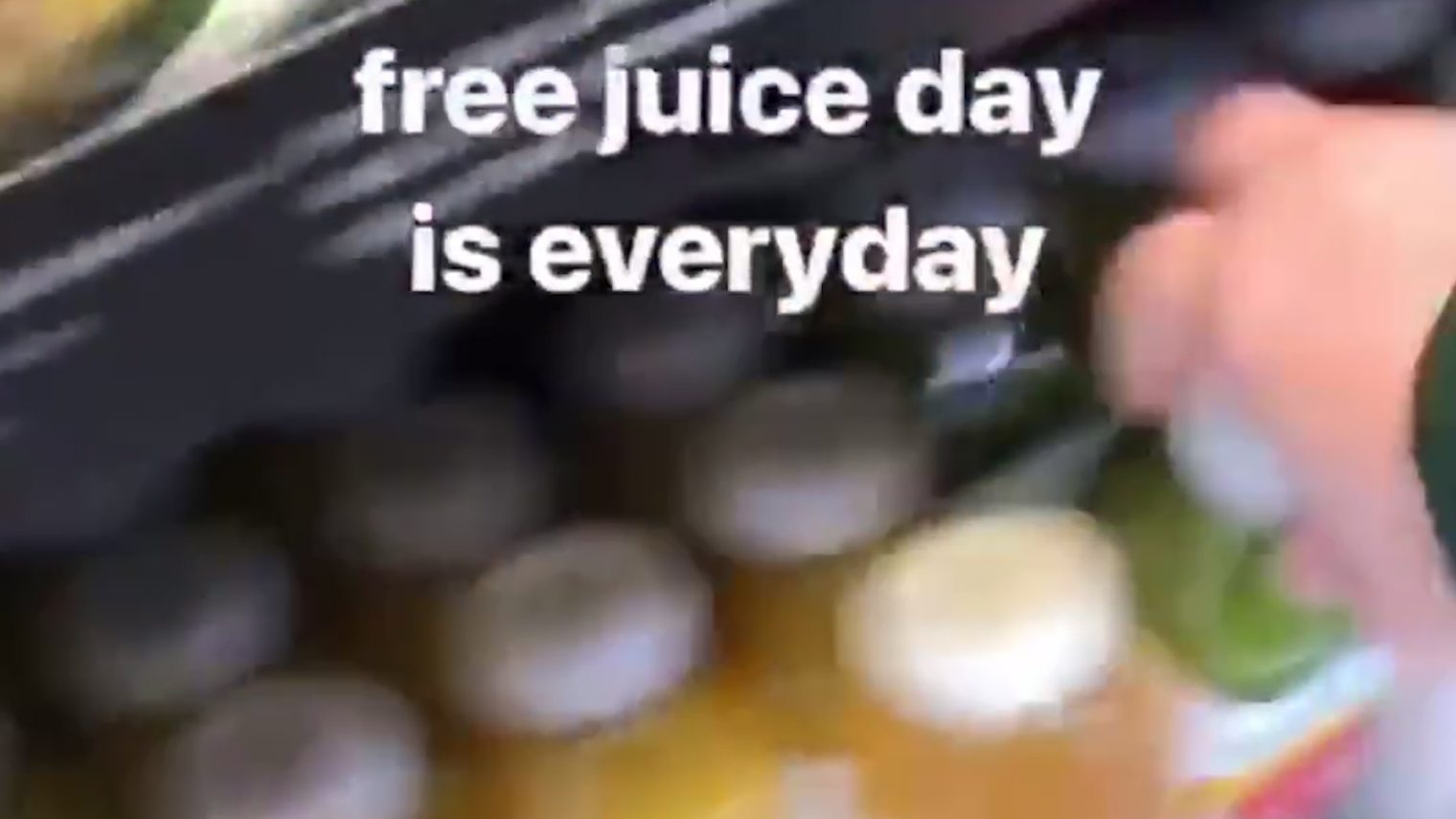
Would you steal food in order to feed the less fortunate? Depending on where you live, it might be illegal to feed the homeless, however, one graffiti artist has sparked a new philanthropic movement that is catching a lot of attention on Instagram called “Free Juice Day.”
Known simply as, “GUNS,” the artist has become a veritable modern day Robin Hood, and uses his Instagram story feature to give a firsthand perspective of his exploits into casual daytime street tagging, t-shirt making, and performing acts of humanity.
Today, Instagram has become a peephole into the lives of more than 800 million people. Whether it be to try out the app’s latest face filters, air out grievances, rant on your latest peeves, to even posting the latest food porn in your latest meal. For graffiti artists, it’s a platform to show off their craft — regardless of the legality.
Photo/Chris Abouabdo, Foodbeast
If you consider the classic tale of Robin Hood, the heroic renegade who stole from the rich to give to the poor — risking his own freedom for the well-being of others, “Free Juice Day” has similar shades of altruistic traits.
Using only the phrase “Free Juice Day,” GUNS records himself stealing bottles of juice from establishments like Starbucks, and gifting it to the less fortunate individuals he finds on the streets.
This kleptomania is usually a daily occurrence for his 75,000+ Instagram followers.
When posting a news video about it, “Free Juice Day” caused a stir on our YouTube Channel, sparking one-side responses reiterating how wrong stealing was and that GUNS should find a day job in order to contribute to the less fortunate. Perhaps, the general public wants GUNS to adopt a less rigid approach to his kind-hearted acts.
Martin Schoeller presumably could serve as an example for GUNS. Schoeller (@MartinScholler), works with the Greater West Hollywood Food Coalition, and posts the images on his Instagram page, which usually consist of “clients of the Greater West Hollywood Food Coalition.” Schoeller spends time interviewing the homeless individuals, photographs and includes their stories of life on the streets within the caption.
In a recent Instagram post, Schoeller explained he created this project with the intention of giving those using the coalition’s services, “a face and a voice,” according to the post. It’s on the other side of the spectrum than the “Free Juice Day” movement, yet what Schoeller does still raises awareness and draws attention to the plight of the homeless.
Albiet illegal, in some respect, “Free Juice Day” spotlights common societal issues that seldom become the focus of Instagram content. Images of homelessness and poverty are reoccurring norms within GUNS’ digital storytelling. For graffiti writers, obscure regions of public space become the ideal environments to produce art, yet, these dark fringes of society enable drug addiction, homelessness and untreated mental illnesses to thrive.
For most of us, it’s easier to ignore these unfortunate occurrences when it is out of sight. Still, Free Juice Day might actually be forcing people to see the real picture. GUNS is stealing. He’s also giving. Regardless of the consequences or legal morality, he’s doing it.

Not much is known about GUNS beyond graffiti art and his Free Juice Day movement, however, despite the unidentified artist’s significant Instagram following.
While Starbucks locations seem to be the main target of Free Juice Day, GUNS’ digital escapades also showcase the spray-happy artist stealing pet food and other supplies, which he hand delivers to the less fortunate and their pets.

When you think of Robin Hood, what do you envision? If he were alive today (or ever) do you think he would steal from spots like Starbucks? Would Robin Hood even be down with Free Juice Day in the first place? Would Robin Hood paint graffiti as a means to beautify his surroundings?
In the true sense of an outlaw, why wouldn’t he?
I asked my Facebook network how they felt about stealing to feed the less fortunate, and though the well-intentioned act expectedly received some merit, there were some mixed responses.

Foodbeast staff writer Costa Spyrou said he could see why someone would be willing to risk their freedom for others.

Foodbeast’s Co-Founder Elie Ayrouth said he might not have the juevos, and stated he’s basically against stealing in general, which makes sense.

James Delgado replied that he wouldn’t risk his freedom.

While it’s safe to say that Starbucks won’t go out of business due to “Free Juice Day,” it’s obviously going to piss some people off, although it’s unclear if GUNS even cares. It’s also unclear if there’s an endgame to Free Juice Day — or why it’s even a thing.
For graffiti purists, stealing is part of game. Some will argue that graffiti can only be considered graffiti if it is performed illegally. Meaning, everything from supplies and location are taken without permission — all times.
In that respect, GUNS is truly a purist. It became clear that in order to understand “Free Juice Day,” I needed to let go of any conventional set of rules or moral compass, which is a difficult concept to grasp — but it’s through that unconventional mindset that makes Free Juice Day possible.
After months of watching GUNS stories, it became clear that normal rules didn’t apply.
Working on this story, I had sparse interactions with GUNS through Instagram direct messages. While he allowed me to tell this story, not much else transpired. My day consisted of taking screen recordings of his Insta Stories, sending him messages and hoping for a reply. I became eager to see new material, up late at night with my cellphone glowing, rewatching his Instagram story dozens of times before they disappeared. It became like tracking wild game.
While people are upset that stealing is a primary characteristic of Free Juice Day, helping or giving to others shouldn’t be judged by a monetary amount.
Whatever the world thinks of the Free Juice Day movement, hopefully this story will make people more inclined to give a helping hand to the drug addicted, homeless and poverty-stricken masses that survive on the streets — and not crucify the artist for his contributions, regardless of morality.

